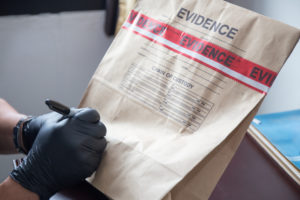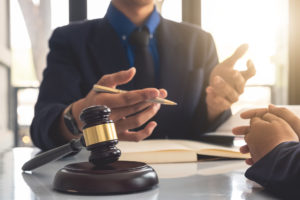Understanding Personal Injury Settlement
Pain and confusion are often results from any accident. More common from are personal injury cases that could bring even more devastation to parties involved. A personal injury case is legally recognized as disputes arising from an accident as a result of one or more people suffering various degrees of damages.
What exactly is personal injury law?
In laymen’s terms, a personal injury case may refer to any legal dispute resulting after a person was injured or harmed in any way because of an accident. Personal injury cases are filed when there is someone at fault and are legally responsible for the accident which has occurred. Cases are then processed by a civil court proceeding which seek to better understand and find who is at fault for the accident. Civil court proceedings may be resolved through a court judgment or through an informal settlement process. When issues are not able to be resolved informally, a lawsuit will need to be filed.
What is a formal personal injury case?
Formal personal injury cases, also known as “formal lawsuits”, are the result of a plaintiff filing a civil complaint against another person, business, corporation, or government agency. The plaintiff’s claim usually involves the defendant to be irresponsible and careless and therefore causing the accident to take place, resulting in harm and injury.
Can a decision be reached without going to court?
Depending on the outcome early on in the case, yes, sometimes an informal settlement can be reached, meaning the issue is resolved without turning into a “formal lawsuit”. To reach a settlement early on in the case, the opposing sides will meet and come to a compromise that suits both parties. Following their negotiation, a settlement will be made, put into writing, and signed.
Are there any limitations to be aware of when filing a lawsuit?
Yes, it is important that a complaint be filed early on in the case in order to meet that “statute of limitations”. The statute of limitations refers to the time from which the accident took place to when the complaint was filed. Statute of limitations varies from state-to-state so it is important to meet with an attorney and file as soon as possible to ensure your complaint meets the time requirements for your state.
Is it difficult to file a personal injury case?
If you are planning on filing a personal injury lawsuit, it is important to remember that the facts and laws must be present in order to present your case. It is very important to seek legal guidance from an experienced personal injury attorney when attempting to file a personal injury lawsuit.
Common types of personal injury cases
Personal injury cases can stem from the various type of situations. It should be noted that not all injury cases lead to someone bearing the liability, but cases where someone is found to be negligent as a result of an injury, a personal injury case may be established for compensation.
The various types of personal injury cases include:
- Car accident cases. Of all types of personal injury cases, a car accident is most common. It could involve two cars crash, or a car hits a pedestrian, a motorbike, or bicycle. It could also result from own- accident due to speeding, distracted driving, and so on where the driver is found negligent.
- Medical malpractice. Professional negligence where a doctor failed to observe due professional care leading to patient’s injury. This type of personal injury case is usually complex in nature as the law requires the plaintiff to prove professional negligence against the defendant.
- Slip and fall cases. This type of personal injury case is often against the property owner for failing to warn users of the premises of any hazard within the premises capable of causing an accident or failing to remove possible risk causing material or impediment that lead to an accident for the victim.
- Dog bites. A dog owner takes responsibility for the action of their dogs. When a dog bites, this responsibility makes them liable for damages and will bear financial costs of the injury caused.
- Assault, battery and intentional torts. The attack on another person carries criminal charges against the attacker. The person who suffered the attack also has the right under the law to press personal charges and make a claim for damages for the injury sustained.
Pursuing personal injury cases may resolve their cases via two options:
- Informal settlement. This is the most common means of settling most personal injury cases. People involved in such situations will meet and resolve the matter amicably without recourse to the law court. However, the resolution of such case should have a written agreement to document the settlement.
- Lawsuit settlement. A personal injury case will start with the plaintiff filing a formal suit against the defendant to ask for justice in the law court. However, the law requires the person who filed the case to argue before the court his case against the defendant. This is different from criminal proceedings where the state is the prosecutor against the accused to uphold the law breached.
It should be noted that personal injury cases must be instituted within a limited time framework. The period means the time an injury occurred or when the plaintiff discovered the injury and the time allowed by law to initiate a case of damage. Such time differs from state to state in America.
The Importance of Hiring a Personal Injury Lawyer
An injury can be overwhelming in many different ways. Not only do you have to deal with recovering, but you also have to manage your insurance claim and various medical bills that may arise. Choosing the right personal injury lawyer will help you keep everything organized and let your claim run smoothly.
When selecting a lawyer, it is important to consider their experience and knowledge on your type of injury along with how or where you were injured. An experienced lawyer will know the proper amount you should claim for your medical expenses that you have now and what expenses you may have in the future. If you claim too much then your claim may be denied, but claiming too little will prevent you from being able to manage any expenses that come your way. A knowledgeable lawyer will know the proper doctors to send you to as well, which will give everyone a clearer picture of what to expect in regards to the severity of your injuries. A personal injury lawyer will look into every aspect of your case and ensure that you are getting a fair amount for damages you may not have even realized were there.
After being in an accident, it might be hard to focus on all of the legal paperwork and medical bills. Hiring a personal injury lawyer will provide you with that peace of mind that your claim is under control and that your claim will reach the maximum settlement. Filing a claim on your own can be stressful which will also put tension on your healing process, so know that choosing to hire a personal injury lawyer is the best way to file a claim.
If you try to conduct a personal injury claim on your own, it may be difficult to conduct the investigation because there are aspects you may miss when you don’t hire a lawyer. This leads to missing out on the maximum settlement you may have received otherwise. Many personal injury cases also involve a lot of legal paperwork. It would make more sense to let you focus on recovering while a personal injury lawyer does all of the other heavy lifting. A personal injury lawyer will look into every insurance policy and will help you determine who is liable and how much compensation you should receive.
Needless to say, but insurance companies are more interested in minimizing their losses than your well being. Hiring a personal injury lawyer will ensure that these companies pay you a fair amount. In order to avoid paying you or minimizing their cost, insurance companies may obtain various medical records – past and present – or attempt to get verbal statements from you that may negatively affect your case. If you have hired a personal injury lawyer, they will be able to advise you on exactly what to say to an insurance company so as not to damage your possible claim. You have a right to an attorney and it is important to note that you should have an attorney present anytime a company is asking you to sign something in regards to your injury or claim. Once you hire a personal injury attorney or lawyer, they will be able to speak on your behalf and make sure everything is filed properly.
Most personal injury cases are not severe enough to go into trial because they can be settled outside the courtroom. If you have hired a personal injury lawyer, they will know your case inside and out and will be able to assist if your case does need to be pushed into a trial. A personal injury lawyer is also able to file the lawsuit and negotiate properly with the insurance company to ensure a fair settlement is reached. Civilians cannot file lawsuits on their own, so this is the most important factor in hiring a personal injury lawyer and if you hire them early in the process, they will provide you with even more leverage over the insurance companies.
Four Steps to Take After Being Injured
When you suffer a personal injury, you’re dealing with ample stress and pain. A future lawsuit could be the last thing on your mind, but it’s important to remember that the incident could result in medical bills, lost wages, and many other expenses. Seeking legal help could be necessary, so be sure to keep your wits about you.
Seek Medical Help
Once the incident occurs, you should seek medical help right away. Many people dislike hospitals and avoid them whenever possible, but you should resist the urge to shrug it off and try to heal up at home. After all, the extent of some injuries may not be immediately apparent. For instance, when dealing with a head injury, it can take weeks, or even months, for symptoms to appear. Acute soft tissue injuries can result in pain that increases exponentially over time. Only a medical professional can understand the scope of these injuries.
In addition, some legal jurisdictions require that you see a doctor within a specific time or you forfeit your ability to file a claim. Seeking medical attention right away is the only safeguard to preserve your future legal rights.
Gather Evidence
Try to obtain as much documentation of the incident as you can. If you’re sent to the hospital, contact a friend or relative to gather information for you. Video, photographs, times, dates, and audio evidence can be collected. If there were any eyewitnesses to the incident, get their contact information. Have a police report taken, and save any torn or bloodied clothing that shows the extent of your injuries. If you need to revisit the scene of the incident to get information, do so as soon as possible.
Find an Attorney
If you’ve suffered a personal injury at the hands of another individual or business, you may have grounds for a lawsuit to compensate you for your losses. It’s critical that you reach out to a personal injury attorney right away. A reputable attorney will provide a consultation free of charge. The firm will then take your case on a contingency basis in which you only pay a fee if compensation is recovered on your behalf.
Collect Documentation
Once you decide to take legal action, it’s vital you have as much documentation as possible in preparation for your court date. Medical records, including the dates and durations of all doctor visits, are of central importance. If a police report was taken, contact the law enforcement branch that took the report and obtain a copy.
Some of the expenses resulting from an injury are easily overlooked. At-home care, prescriptions, and medical equipment are but a few of the costs you could be burdened with. Lost wages, transportation costs, and intangibles such as pain and suffering can all be included in your claim. Punitive damages are also a possibility. Your attorney can advise you on what expenses you should document.
Settlement Money: Lump Sum or Payments?
Personal injury cases are typically settled with either a lump sum payment or a structured settlement. If you’re owed a significant sum of money, it’s important to understand how these options work. There are pros and cons to each approach. The specifics of your case will help you determine which type of settlement fits your needs best.
How Lump Sum Settlements Work
A lump sum settlement is the fastest and simplest way to deal with your money. You will receive your total settlement in one payment. After you cash the check, your case is over, and there’s no continued access or interaction with the defendant. This is usually the best option for small-to-medium amounts. For settlements that are less than $150,000, a lump sum payment is the most common choice.
How Structured Settlements Work
Structured settlements are paid out in a series of smaller payments distributed over time. There are many ways to structure these types of settlements. You will usually get a larger sum in the beginning, followed by smaller amounts paid out monthly, bi-monthly, bi-annually, or annually. However, you can choose to begin with smaller payments that grow gradually or structure the settlement with a brief period of large payments to coincide with a child going to college or another major life event. You will also decide whether payments will continue after your death and go to your heirs for a specified period.
The details of these payments are determined when you settle the case. You cannot change your payments later, so it’s crucial that you think through how and when you will use the money so you have access to the necessary funds when you need them.
Tax Considerations
The biggest difference between lump sum and structured settlements is how taxes are handled. If you receive a lump sum payment, you will be responsible for taxes on any dividends you earn on the money. If you invest the money, as you probably should, you will pay taxes as determined by your tax bracket for earned interest.
With a structured settlement, you receive smaller payments that you’re more likely to use immediately. Since you probably won’t be investing this money, you won’t have to pay taxes on it.
Money Management Concerns
When you get a lump sum payment, you have total control over how you manage the money. If you’re financially responsible and investment-savvy, your lump sum payment could grow significantly over time, even with your taxes figured in. However, if you’re not sure how to manage a large sum of money, you might be more comfortable with a structured settlement, which ensures that you have access to a steady stream of money over a longer period.
There are many details to consider when you’re dealing with settlement money. Your attorney can help you explore your options and choose the best plan for your personal needs. This is an important part of handling your case.

Tips for Maximizing Your Personal Injury Accident Settlement
1. Investigate Thoroughly
When it comes to accident cases, there is going to be a lot of “he said/she said.” To get past exposition and expose the facts, you or preferably your accident attorney will need to do some serious digging.
Be sure that witness statements get collected, police reports are obtained, and you get your medical records. Furthermore, consider working with private investigators to see what other kind of critical evidence can be dug up.
2. Never Release Your Records to The Opposite Party’s Insurance Company
After an accident, a 3rd party insurance company may request access to your medical records. Never sign them over.
While your insurance company may be allowed access to your records, 3rd parties are not entitled to that information. If they get granted access, they may use the information against you.
3. Don’t Jump at the First Offer
Insurance adjusters will always offer you a very low settlement right out of the gate. Either that or they will deny liability completely.
Don’t fall for those tactics.
Be sure to always consult an injury attorney to properly assess offers presented and negotiate counteroffers. Bargaining is an integral part of maximizing your accident settlement so never be afraid to negotiate.
4. Do Not Belittle Your Emotional Pain Points
While hard to put a dollar amount to, your emotional pain matters when it comes to an accident settlement. If your case were to go to trial, a jury would certainly be moved by the intangible damage an accident had on your life. For that reason, an insurance adjuster will listen as well during negotiations.
If you couldn’t care for your children adequately because of your injury, let the adjuster know. If you experience nightmares or have a fear of doing certain activities now, let your adjuster know.
All of these intangibles are worth something to your claim.
5. Stay Off Social Media
In today’s society, most people don’t think twice about what they share on social media. Even though you think posting a picture or update on Twitter, Facebook, or Instagram is harmless, defense attorneys will scour the internet looking for anything they can use in their case, including your posts on social media. They will try to use pictures or posts you put online as proof that your injury isn’t as severe as you claim it is. When you’re dealing with a personal injury lawsuit, your best bet is to stay off social media entirely.
6. Know When to Engage a Lawyer
There are a lot of intricacies to maximizing an accident claim. Furthermore, opposing parties will do everything in their power to make sure you don’t get what you’re entitled to.
To take the burden of navigating complicated legal webs off of your shoulders and ensure your interests get defended, it’s imperative you have a qualified attorney by your side.
Wrapping Up Tips for Maximizing your Accident Settlement
If you’re seeking an accident settlement after a personal injury, we recommend following our tips above to boost your settlement amount. Among the most important of these tips we’ve shared is the final one – knowing when to engage a lawyer.
To that end, our team at David W. Singer & Associates has you covered. Our group has been helping people like you get their lives back on track after accidents by fighting and winning them fair settlements.

The Value of Evidence in a Personal Injury Case
Evidence is the material used in court cases to either prove or disprove the charges. Strong evidence translates to a strong case, so if you are ever involved in a personal injury case, then you want to do everything in your power to ensure that all evidence remains intact and accessible. Spoliation occurs when evidence is lost, destroyed, or otherwise tampered with; when this happens, the evidence can no longer be used in the case.
Depending on the case, there may be penalties for spoliation of evidence. The penalty could involve having to pay a fine, or it could result in criminal proceedings and conviction. To some judges, when an individual destroys the evidence involved in a personal injury, it may appear as if that person had a desire for the evidence to be destroyed and therefore was aware of his or her guilt.
Specifically, in personal injury cases, spoliation can affect cases involving defective products. If you are involved in a personal injury case based on a defective product, your saving that defective product could mean the difference between winning your personal injury case and having the case dismissed because the only evidence available was your testimony.
Because of spoliation, a Texas man was awarded over one million dollars in a 2013 slip-and-fall case. In this case, Brookshire Brothers Ltd. V. Aldridge, the store where the fall occurred had recorded over the footage shot by the surveillance system in the minutes prior to when the fall occurred. The jury saw this as the store attempting to cover up any footage of possible wrongdoing, to avoid releasing footage that might show they were guilty.
If you become injured due to a defective product, do not throw the product away. Preserve the product so it will make it to trial if need be. If you believe you have grounds for a personal injury case, it is important to contact an attorney right away. Your attorney can help you understand your options, and can also instruct you on how you can best preserve evidence to prevent spoliation from spoiling your case.
Wording is Everything in this Personal Injury Case
Every personal injury case is unique and the latest one from Massachusetts is no different. Gun ownership can be a tricky case because there are always two sides to a story. In a Smith & Wesson case, a couple was trying to sue because of a possible defect with their product.
While visiting a gun store in Murfreesboro, TN, Randy and Vicki McNeal were attempting to put their gun in its safety lock when it dropped and discharged during the fall. Mr. McNeal claims that he was having trouble locking the gun because a loose screw from the sight was in the way, causing him to drop the gun accidentally. After attempting to catch the gun, it fired and shot Mr. McNeal’s pinky finger.
After the accident, Mr. McNeal needed to have his pinky finger amputated because there was no way to save it, resulting in costly medical bills. Randy and Vicki decided to sue the gun maker Smith & Wesson for $75,000 for personal injury and for their faulty product.
What made this a difficult case was the wording in the couple’s claim. Simply put, an injury does not prove that a product is faulty. In addition, if a product has a defect, a company is not necessarily liable because companies do not have to make “accident-proof” products. This is why many companies place multiple warning labels or booklets within the product packaging, even if the warning seems silly, it can save the company from cases like this.
U.S. Judge Todd Campbell dismissed this case within federal court because the screw is not what caused Mr. McNeal to drop the gun that was human error. This is proof of just how important wording can be in personal injury cases because the plaintiff’s lawyer is going to look for any flaw within your case.
For the McNeal case, the claim failed to prove that the screw is what caused the gun to fire. This case turned into whether the design had a defect that would cause an injury, which is why the federal court would have dismissed the case.
Trust that when you choose David W. Singer & Associates, we will get you the most for your personal injury case and ensure that the wording does not end up backfiring on your settlement. Contact us today for your free consultation and we’ll get you set up with the best attorney in your area.




Recent Comments